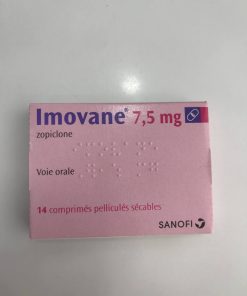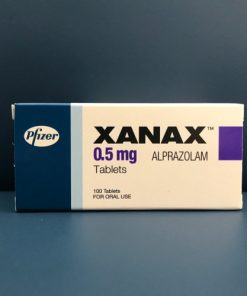Alprazolam (Xanax): Understanding Alprazolam for Sleep Difficulties
Alprazolam, commonly known by the brand name Xanax, belongs to the benzodiazepine class of medications. While primarily prescribed for anxiety and panic disorders, it can also provide significant relief for patients struggling with sleep difficulties, particularly when anxiety contributes to sleep problems.
How Alprazolam Helps Improve Your Sleep
If you’re battling insomnia or sleep disturbances, Alprazolam may offer several important benefits:
– **Faster Sleep Onset**: Helps reduce the time it takes to fall asleep by calming an overactive mind and easing nighttime anxiety
– **Improved Sleep Maintenance**: Reduces middle-of-the-night awakenings, helping you stay asleep longer
– **Enhanced Sleep Quality**: Promotes deeper, more restorative sleep phases
– **Anxiety Reduction**: Addresses the underlying anxiety that often triggers or worsens sleep problems
– **Break the Insomnia Cycle**: Helps interrupt the frustrating pattern of poor sleep leading to more anxiety about sleep
Research shows Alprazolam is particularly effective during initial nights of treatment, making it valuable for short-term sleep difficulties when you need immediate relief.
## Proper Usage for Sleep Issues
For optimal sleep benefits with minimal risks:
| Patient Type | Typical Starting Dose | Important Notes |
|————–|———————-|—————–|
| Most Adults | 0.25-0.5mg at bedtime | Take 30 minutes before desired sleep time |
| Older Adults | 0.25mg at bedtime | Lower doses reduce side effect risks |
Your doctor will determine the right dosage based on your specific sleep concerns, overall health, and other medications you may be taking. Always follow your healthcare provider’s exact instructions.
Important Safety Considerations
While Alprazolam can be effective for sleep, patients should be aware of these important factors:
– **Short-Term Solution**: Most appropriate for temporary sleep difficulties rather than long-term insomnia management
– **Effectiveness Timeline**: Benefits for sleep may decrease by approximately 40% after one week of use
– **Potential for Rebound Insomnia**: Sleep problems may temporarily worsen when discontinuing the medication
– **Common Side Effects**: May include morning drowsiness, dizziness, or coordination issues
Never combine Alprazolam with alcohol or opioid medications, as this can cause dangerous respiratory depression.
Patient Guidelines for Best Results
To maximize benefits and minimize risks when using Alprazolam for sleep:
1. Take exactly as prescribed, never increasing your dose without medical guidance
2. Discuss any other medications you’re taking with your doctor
3. Attend all follow-up appointments to monitor effectiveness and side effects
4. Consider combining with good sleep hygiene practices for better results
5. Work with your doctor on a plan for eventual discontinuation
Remember that Alprazolam provides temporary relief while you address underlying sleep issues. Your healthcare provider may recommend additional approaches such as cognitive behavioral therapy for insomnia (CBT-I) for long-term sleep improvement.
Always consult your healthcare provider before starting or stopping any medication for sleep difficulties.
“`











